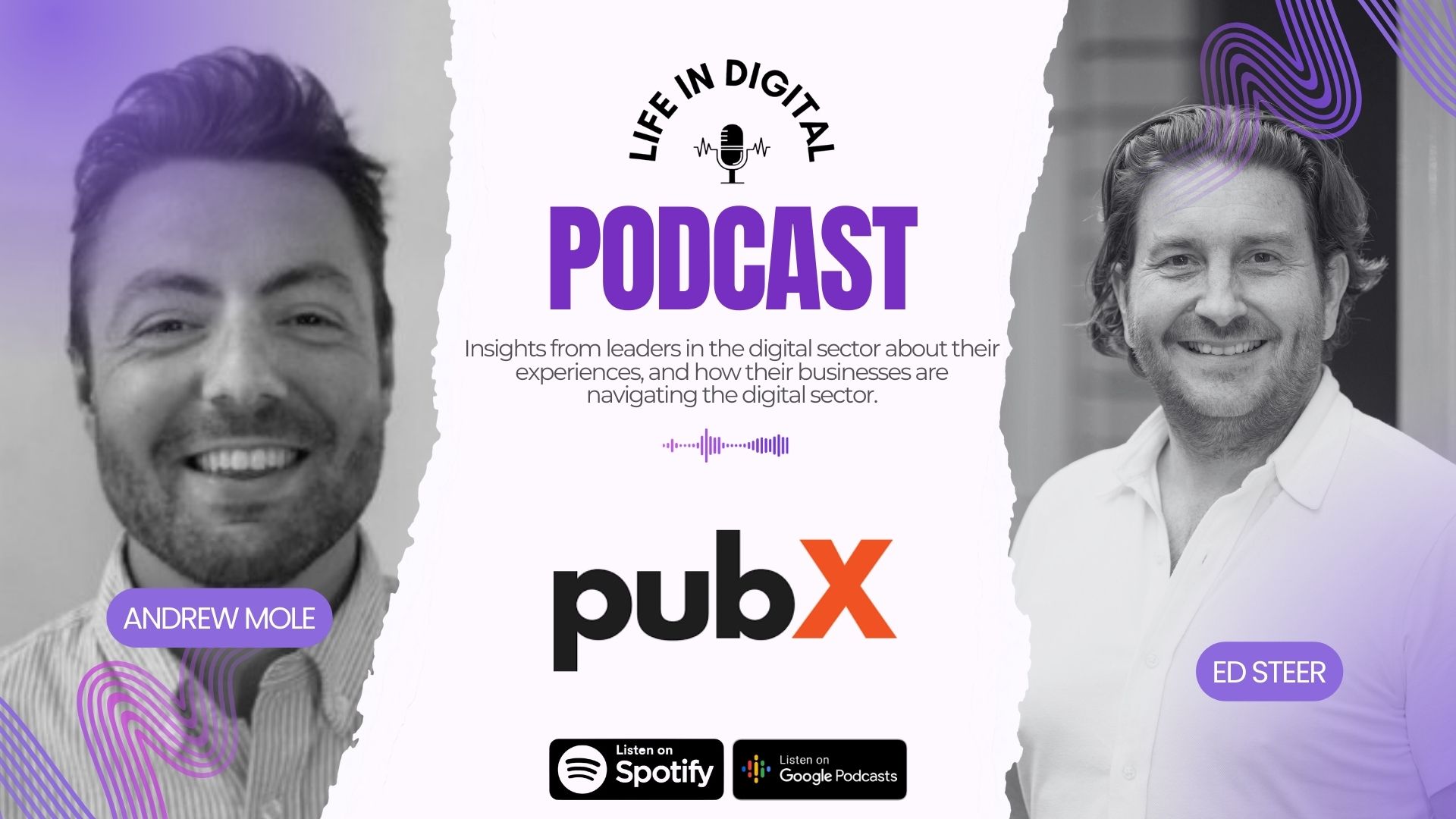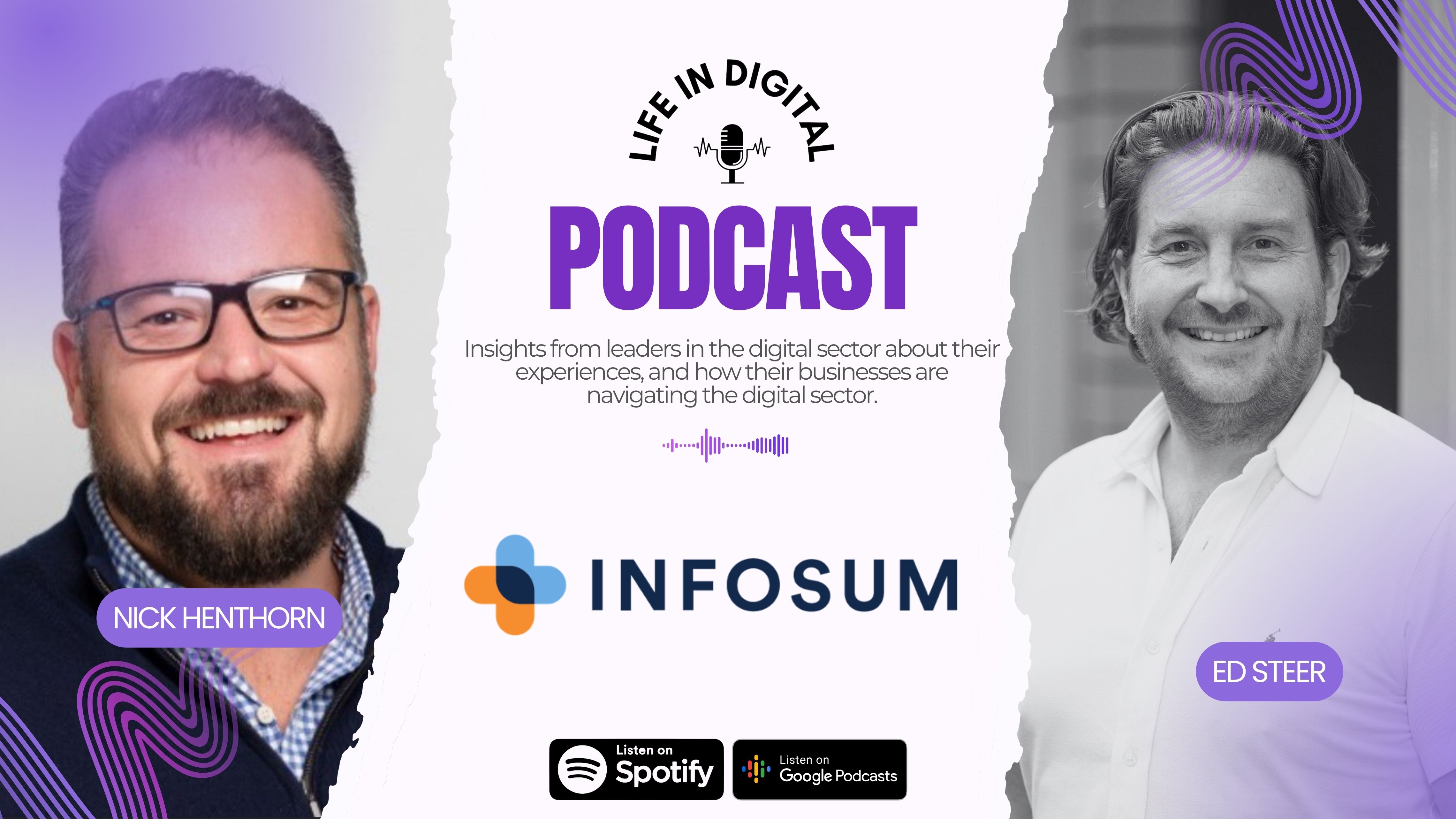The Evolution of Privacy-First Digital Advertising
22 Apr, 20225 minsPeter Wallace, SVP of Sales from GumGum, has joined Ed Steer on our latest episode of our Li...

Peter Wallace, SVP of Sales from GumGum, has joined Ed Steer on our latest episode of our Life in Digital Podcast to uncover how digital advertising technology is evolving and where the growth areas are for the industry in the years’ ahead.
Peter goes into detail of how the combination of using creativity and contextualisation in advertising can add value and reach the targeted audiences without needing the use of cookies. He shares how attention and attribution will evolve and become more significant over the next 12 months.
Overcoming challenges in a post cookie world
The digital advertising industry has undergone major changes with identifiers, cookies and mobile IDS which are on the decline. New regulation laws are rising, bringing with them a new set of compliance challenges. Within this industry companies are seeking a more privacy-forward, sustainable and effective solutions to reach people online. Peter explains:
“Over the last 2-3 years we have seen some of the biggest changes in the industry that we have never seen before such as, privacy compliances, GDPR and browsers changing their policies to cookie consent.”
In a post cookie world, it Is crucial for ads to be equally creative and contextualised with substance that engages consumers and ultimately provides agencies with results to measure.
‘Over three quarters of UK consumers (79%) are more comfortable seeing online ads that are relevant to the web page they appear within than ads that are based on their browsing history.’ (GumGum, 2022)
Producing and delivering a creative ad to the consumer is important for retaining their attention but adding relevant context and value can increase consumer interactions with these ads. Ad Tech can be mirrored to Tinder, “you don’t just swipe right” – adding substance can help the ad go a long way.
Companies within the Ad Tech industry are seeking new solutions to creating ads that can engage with existing audiences but also reach new ones without the use of consumer data. Read more about clean data rooms here, our previous episode with James Prudhomme, CRO at Optable.
Mindset Matrix – A Framework for Digital Advertising
The Mindset Matrix, as explained by Peter, consists of three key components which includes contextual expertise, attention grabbing ad creatives and improving overall performance by optimizing towards attention.
These three areas can be seen as the blueprint for the future of digital advertising as it can help captivate a consumer’s frame of mind in the current and emerging digital environments such as In-Gaming experiences, the Metaverse, Netflix, TikTok, etc...
Context
Contextually targeted ads are created using technology which gives people the power to show what they are interested in at that very moment and deliver ads that align with what they truly care about.
Creative
Being dynamically ad creative will help capture people’s attention and can amplify the message to the audience once it has been placed within the right context on the page.
Attention
Identifying the amount of time someone spends looking at the ad, can be seen as a human quality metric which captures that person’s interest in that certain ad at that moment. This ultimately helps identify the ad relevance and the match between the right creative and the right context.
How do contextual ads work?
Understanding the nuances of text and imagery on videos that consumers view is what allows ads to be contextualised. Especially in CTV and OTT, being able to scan and understand video and text allows agencies to gather contextual information which forms a human level understanding and therefore makes it easier create valuable ads for consumers. Peter says:
“We see it as a scalable appliance, a non-intrusive targeting methodology to keep moving forward to privacy solutions”.
Knowing that this can be the future of digital advertising whilst abiding to new regulations, there are various new avenues publishers and agencies can venture into and share ads on for example with the emergence of the Metaverse and in-gaming experiences it can gain a new scope of audiences. With this, the ads that are created need substance with a high catching format that allows them to build long term relations with consumers.
GumGum and their Just Premium acquisition – how it will solve industry challenges?
This year’s acquisition has been introduced to help combat the new challenges brands and publishers face in the Ad Tech industry, by combining the creative solutions that Just Premium offer with the high level of technology that GumGum provides, it can take the creativity to another level. By integrating into a European market and accelerating growth there is an opportunity to tackle these challenges on a geographic scale.
Eric Visser, President of EMEA, GumGum shares:
“It’s been five years since GDPR went into effect and the industry has had to start facing a future without personal data. We are delighted to be in a stronger position now more than ever to support our partners across the EMEA market with a privacy-forward solution through contextual and creative that allows them to still deliver attention-grabbing campaigns that deliver results.”
This is an exciting time for GumGum and the team as they continue their expansion which Peter shares in detail.
If you want to find out more about this acquisition or how the digital advertising industry is evolving listen to Peter Wallace on our Life in Digital Podcast.




